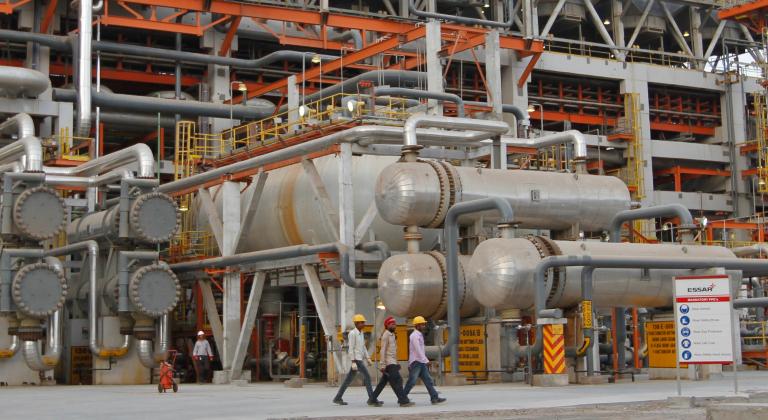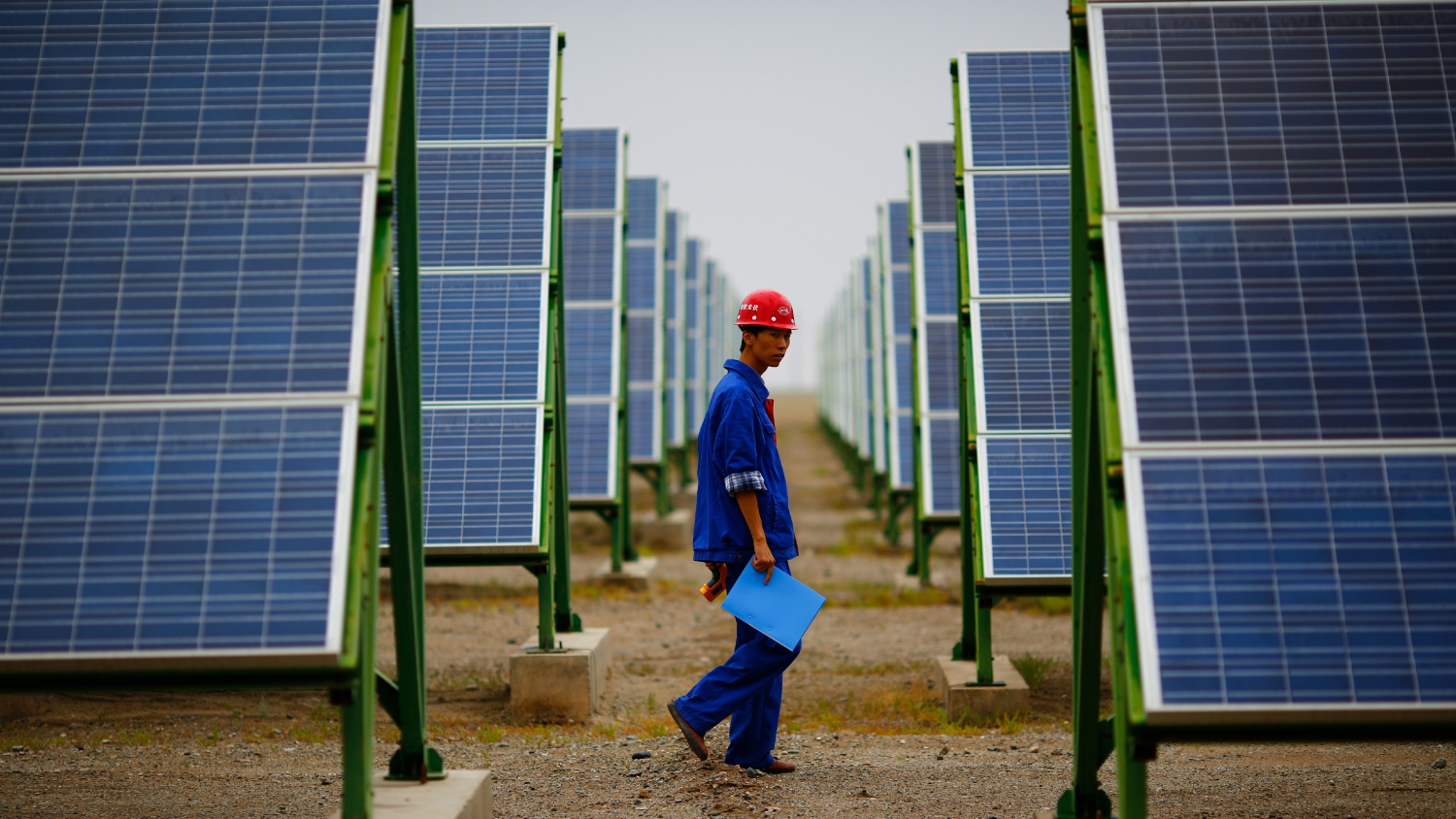China has given environmentalists a lot of encouraging signs in recent years. Its highly polluting heavy industries have been slowing down, as has its coal consumption. In November, President Xi Jinping announced that the country would take steps to allow its emissions to peak around 2030, while simultaneously ramping up renewables. Increasingly, it seems like the country may be on track to hit that goal even earlier — perhaps by 2025.
But now, China’s economy has hit a rough patch. Its stock market crashed last month, and, earlier in August, the government devalued China’s currency, the yuan, in what by some measures is the currency’s largest depreciation in 20 years. The International Monetary Fund is predicting that China may not even hit its growth target of 7 percent this year, which was already far more modest than the double-digit growth China had been experiencing just five years ago.
In Western countries, signs of economic insecurity can lead to panicky calls to throw pro-environmental policies out the window. And China, historically, has displayed quite an appetite for cheap, dirty coal. Is there a danger that, in the face of an economic slowdown, China’s policymakers will take a step backward?
Probably not, say economists and environmentalists with an eye on China. In fact, there are a number of reasons why a Chinese economic slowdown could even be helpful for the environment.
That’s because, though the stock market crash last month got quite a bit of media attention in the West, there’s a bigger picture here. The Chinese economy is going through a slow-moving shift that has been gathering strength for quite a while now.
For years, the country’s double-digit levels of growth were fueled by the government investing huge proportions of the country’s GDP into Chinese industry — much of which is heavily polluting. But now, that sort of investment and growth have proved economically unsustainable. There are fewer and fewer investment opportunities available with the extremely high rates of return needed to sustain this economic model. In the meantime, the country’s debt has ballooned while the environment has been sacrificed.
So now the Chinese government is embracing what President Xi has described as China’s “new normal”: The government will accept the inevitability of falling growth rates, and will invest less in efforts to spur growth.
“The ‘new normal’ is a recognition that China’s economic structure needs to change, and is changing anyway,” said Fergus Green, a policy analyst at the London School of Economics’ Grantham Research Institute on Climate Change and the Environment. “China’s got a lot of growth mileage out of its [old] strategy, but that strategy has kind of run its course and left a number of challenges in its wake — economic, social, and environmental.”
Slower growth will mean less industrial demand, and much of China’s electricity is used by its heavy industries. “Chinese industry is renowned for being energy inefficient,” said Varun Sivaram, Douglas Dillon fellow at the Council on Foreign Relations. “My prediction is slowing economic growth has this kind of knock-on effect of low industrial power demand, which, I think, will skew toward lowering demand for coal versus any other power source, because coal is kind of the baseload power of choice.”
In this way, China’s economic slowdown could help the country meet its environmental goals. In fact, the government is also pushing a shift that will be helpful toward the environment. “An intrinsic part of the ‘new normal’ is a shift away from very high-energy-using industries towards industries … that all have a much lower energy requirement,” said Green.
But less reliance on heavy industry, of course, won’t get the country all the way to its climate and energy goals. China will have to “make sure that as investments go down overall, investments that still make socioeconomic sense, such as renewable energy, are maintained and scaled up,” said Lauri Myllyvirta, a senior campaigner with Greenpeace who tracks coal power in China. Even in the face of speed bumps like last month’s stock market crash, environmentalists are fairly confident that the government will remain committed to bolstering its renewable energy industry.
It has a number of incentives to do so: For one thing, as evidenced by the huge response earlier this year to the environmental documentary Under the Dome — sometimes called China’s Silent Spring — the country’s citizens are pretty tired of living in cities with some of the most dangerous levels of pollution on the planet, a concern the government is certainly aware of and is beginning to respond to. For another, China promised the world it would cut greenhouse gas emissions, and analysts are confident that China intends to keep that promise.
“I think China makes international commitments very carefully, and this particular one, I don’t think it was hasty or ill-thought-out. I think it was very well-thought-out. I don’t see China reneging on that commitment,” said Sivaram. “And in order to not renege on that commitment, China will have to continue to keep increasing its share of renewables in the power mix as well as slowing down — not halting or reversing, but, in the near term, slowing down — the construction of coal power plants.”
China’s economic model makes it easy for the government to invest in new projects, said Myllyvirta. That works in the favor of projects the government would like to prioritize, like renewables. On the other hand, it’s not so easy for the government to rein in dirty projects. “Things that involve limiting investment into certain things or enforcing emissions standards have taken a lot of political will and infighting to implement,” Myllyvirta said. For that reason, the country has been slow to stop building coal power plants.
But China must have felt confident in its ability to limit coal consumption when it made its international commitment last November, and reaffirmed its commitment to the U.N. earlier this year.
“Part and parcel of how the Chinese political system functions is through the credibility of the Communist Party to follow through on big, important visions,” said Sivaram. “And given the conviction with which President Xi has signaled both internationally and domestically what he is going to do in energy, I do not expect him to change course.”
China’s leaders were talking about the “new normal” of slower economic growth long before they made their recent climate commitments, so it’s a fair bet that they factored that slower growth into plans for meeting climate and environmental goals.
So, though Western investors might be worried about the state of China today, environmentalists can feel reasonably confident that the country is on the right path — perhaps more so than many countries in the West.



